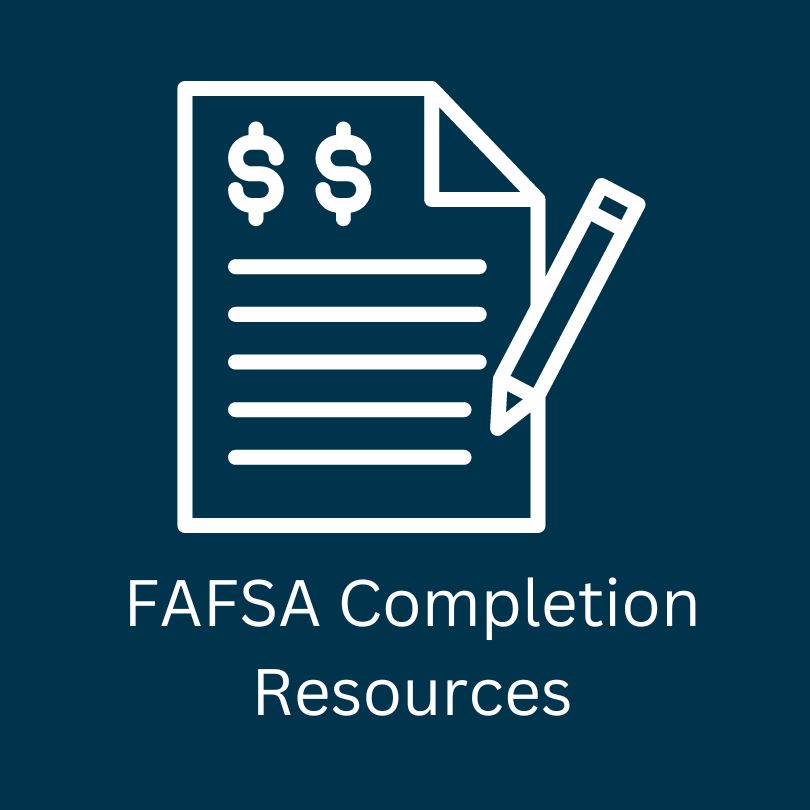Click here to visit the Data Collections website.
The Kansas Board of Regents has approved a strategic agenda for the state’s public higher education system, Building a Future. The plan centers the work of the system on helping Kansas families, supporting Kansas businesses and advancing the state's economic prosperity.
Wichita State University
Wichita State University’s strategic plan is guiding WSU’s transformation to an Innovation University. The plan emphasizes applied learning and research to become an economic driver for the state and south central Kansas region.
- Click here to review the full plan and updates on our progress.
- Click here to view the Campus Master Plan (2014, with 2017 supplement).
Pittsburg State University
Pittsburg State’s current strategic plan, which runs through the year 2015, has served the university well. Adopted in 2007 and reaffirmed in 2010, it has become the roadmap for our university, addressing everything from the future of academics to which goals take top priority. In order to maintain the momentum that this plan has provided, university officials have launched a new strategic planning effort.
- Click here to review the 2016-2022 plan.
- Click here to view the Campus Master Plan (2016).
Emporia State University
Launched in 2015, The Adaptive University is the strategic plan for ESU, which is responsive and will engage faculty, students, and staff to be responsive to the unique challenges of a dynamic society.
- Click here to review the plan.
- Click here to view the Campus Master Plan (2014).
University of Kansas
Bold Aspirations is the strategic plan for the University of Kansas, designed to enhance the university’s ability to achieve its mission of lifting students and society by educating leaders, building healthy communities, and making discoveries that change the world.
- Click here to read the plans for KU and the KU Medical Center, and for updates on our progress.
- Click here to view the 2014-2024 Campus Master Plan.
Fort Hays State University
Forward Thinking. World Ready. is the University's Roadmap for 2020, which is committed to seeing FHSU recognized as one of the nation's fastest growing universities in students served and quality of education provided by 2020.
- Click here to learn more.
- Click here to view the Campus Master Plan (2013).
Kansas State University
K-State 2025 planning began in February 2010 and the plan was launched in 2011. Eight key university metrics were identified to benchmark and measure progress towards becoming a Top 50 public research university. The plan defines seven theme areas with goals, associated action plans and expected outcomes, as well as eight common elements spanning all theme areas.
- Click here to review the plan.
- Click here to view the Campus Master Plan (2012).
A person who is a Kansas resident for tuition and fee purposes is eligible for in-state tuition at state universities. Please read and consider the following FAQs to determine if you might qualify for in-state tuition.
- Who sets policies regarding residency?
- Where can I get a copy of these laws and regulations?
- How is my residency status for tuition determined?
- What is the basic rule regarding residency for tuition and fee purposes at state universities?
- What if I used to be a resident but left the state and now have returned?
- Can I become a resident while going to school full-time?
- I've lived in Kansas for over year; am I a resident now?
- I just married a Kansan; does that make a difference?
- Can a foreign student become a resident?
- Are there any special exceptions to these rules?
- What should I do if I have been classified as a non-resident and I believe that is wrong?
- Is it possible that I am not a resident anywhere for tuition and fee purposes?
1. Who sets policies regarding residency?
The laws and regulations regarding residency for tuition and fee purposes are established by the Kansas Legislature and the Kansas Board of Regents. State universities are required to follow these rules and may not establish their own. The Legislature’s and the Board’s rules are unique to residency for tuition and fee purposes at the state universities, and residency for other purposes, such as for community college tuition, may differ.
2. Where can I get a copy of these laws and regulations?
All Kansas Statutes Annotated (K.S.A) can be found at the Kansas Legislature’s website: www.kslegislature.org. Kansas Administrative Regulations (K.A.R) are available from your Registrar’s office, but are also available here. Citations for the appropriate law or regulation will follow the questions below, so that you can read the source of the answers.
3. How is my residency status for tuition determined?
Your residency status is initially determined by the Admissions Office working with the Registrar on your campus. The determination is based on the information provided in your application to the university. The Registrar’s decision is guided by the laws and regulations established by the Kansas Legislature and the Board of Regents. (K.A.R. 88-2-1)
4. What is the basic rule regarding residency for tuition and fee purposes at state universities?
Generally, if you (or your parents, if you are a minor) have lived in Kansas more than one year (12 months), you have not been enrolled at a state university during that time, and you intend to stay in Kansas indefinitely, you will be considered a resident for tuition and fee purposes. In other words, you demonstrate that you have chosen to live in Kansas for at least 12 months because you want to make Kansas your permanent home and not just because you want to get in-state tuition. (K.S.A. 76-729 and K.A.R. 88-3-2)
5. What if I used to be a resident but left the state and now have returned?
As of July 1, 2006, if you can prove you were a resident for tuition and fee purposes within the last five years (60 months) and that you have returned to live in Kansas, you will be deemed a resident for tuition and fee purposes. (K.S.A. 76-729 as amended by 2007 HB 2185 §10)
6. Can I become a resident while going to school full-time?
Usually, no. Someone who comes to Kansas to go to a state university and who is a full-time student has to overcome a strong presumption that he or she is only here temporarily for the duration of the educational program. Overcoming that presumption can be very difficult to do while remaining a full-time student. The answer to the next question provides more information on the factors that may indicate intent to be a resident in Kansas. (K.A.R. 88-3-2)
7. I've lived in Kansas for over year; am I a resident now?
Qualifying as a resident for fee purposes requires more than just being present in the state for a year. The Registrar will consider the following types of things, if they have existed for at least 12 months, to determine your intent to be a Kansas resident. No one factor alone is determinative of residency.
- Continuous presence in Kansas, except for brief temporary absences, during periods when not enrolled as a student
- Employment in Kansas
- Payment of Kansas state individual income taxes
- Reliance on Kansas sources for financial support
- Commitment to an education program that indicates an intent to remain permanently in Kansas
- Acceptance of an offer of permanent employment in Kansas
- Admission to a licensed practicing profession in Kansas
- Ownership of a home in Kansas
The following things, standing alone, generally do not establish residency.
- Voting or registering to vote in Kansas
- Employment in any position normally filled by a student
- Lease of living quarters in Kansas
- A statement of your intention to acquire residence in Kansas
- Residence in Kansas of the student’s spouse
- Vehicle registration in Kansas
- Acquisition of a Kansas driver's license
- Payment of Kansas personal property taxes
(K.A.R. 88-3-2)
8. I just married a Kansan; does that make a difference?
It might. The residency status of married individuals is determined separately for each spouse, but if you have been married more than 12 months, it will be considered a factor in your application for residency. (K.A.R. 88-3-7 and 88-3-2)
9. Can a foreign student become a resident?
Usually, no. Anyone who is here on a temporary visa—including student, training and practical experience visas—must leave this country once the purpose for which he or she was allowed to enter the county has been met. Not having permission to stay in the country permanently, such persons cannot demonstrate the requisite intent to make Kansas their permanent home. (K.A.R. 88-3-2)
10. Are there any special rules for certain categories of individuals?
Yes, even if someone does not qualify for in-state tuition rates because they have not been a Kansas resident for twelve months prior to enrollment at a state university, subject to applicable requirements Kansas law allows in-state tuition rates for individuals including: certain Kansas high school graduates; veterans eligible for federal education benefits and current military personnel, and their spouses and dependents; people who have been recruited to work in Kansas and their dependents; residents who left but who re-establish their Kansas residence within five years; dependent students whose parents are divorced, as long as at least one parent is a Kansas resident for tuition and fee purposes; enrolled members of certain Indigenous American Tribal Nations; and certain employees of state universities and their dependents. (K.S.A. 76-729 and 76-731a; K.S.A. 48-3601; K.A.R. 88-3-8a, 88-3-9, 88-3-10, 88-3-11, and 88-3-13)
For assistance in determining the availability of in-state tuition rates pursuant to state law, please contact the Office of the Registrar at the institution where you intend to apply for admission. For more information on in-state tuition for military servicemembers and veterans, visit: http://www.kansasregents.org/students/military
11. What should I do if I have been classified as a non-resident and I believe that is wrong?
If you disagree with the Registrar’s determination, you may appeal the decision to a residency committee at your university. The Registrar’s office has forms for you to use to file an appeal. The appeal must be filed within 30 days of the date you were notified of the determination. The determination of the residency committee is final and subject only to review by a court.
Note: The Board of Regents cannot change the determination of the Registrar or the residency committee. (K.A.R. 88-3-1)
12. Is it possible that I am not a resident anywhere for tuition and fee purposes?
Yes. The information provided here only applies to residency decisions related to the tuition and fees charged by Kansas state universities. Different rules may apply to residency status in your home state or for other schools. The different definitions and rules applied by different states could result in your not being considered a resident of any state, for tuition purposes.
The mission of Wichita State University is to be an essential educational, cultural, and economic driver for Kansas and the greater public good.
The University of Kansas Medical Center is an integral and unique component of the University of Kansas and the Kansas Board of Regents system. It is composed of:
• School of Medicine – Kansas City, Wichita and Salina campuses
• School of Nursing
• School of Allied Health
The KU Medical Center trains professionals to meet a wide range of health needs in Kansas – from the critical need for primary care and prevention to the urgent need for highly innovative and specialized clinical care. Further, the Medical Center produces medical scientists who are essential for basic and translational research, supplying the state’s bioscience and biotech workforce and creating economic development. The KU Medical Center serves people throughout the State of Kansas and the region, in rural as well as urban areas. The programs of the KU Medical Center are comprehensive and maintain the high scholarship and academic excellence upon which the University’s reputation is based. The KU Medical Center’s mission is to create an environment for:
Education. The KU Medical Center educates health care professionals to primarily serve the needs of Kansas as well as the region and the nation. The Medial Center offers high-quality educational experiences to a diverse student population through a full range of undergraduate, graduate, professional, postdoctoral and continuing education programs.
Research. The KU Medical Center strives to advance the health sciences though internationally recognized research programs in strong basic, clinical, and translational sciences, as well as drug discovery, health services research and public health.
Patient Care. The KU Medical Center provides exceptional patient care with a focus on quality care and outcomes through hands-on student training, residency programs, affiliations with hospitals and clinics throughout the state, Telemedicine and Telehealth consultations, and student- and faculty-operated clinics to care for the underserved and uninsured.
Service. The KU Medical Center serves the citizens of Kansas, the region and the nation by developing, implementing and promoting model health care programs, and though numerous charitable, philanthropic and mission-oriented endeavors.








